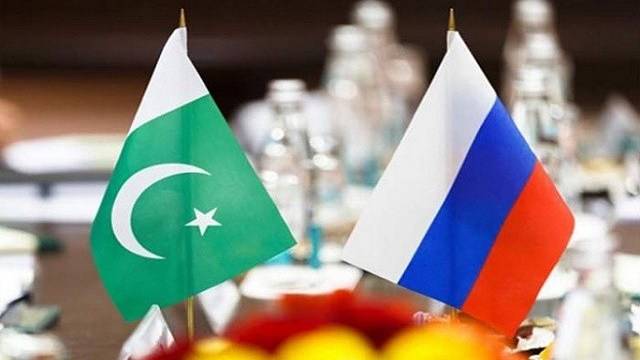ISLAMABAD - Pakistan and Russia will expand military ties in the coming months as the two nuclear powers come closer, officials said on Friday.
Senior officials at the foreign ministry told The Nation that Islamabad and Moscow had agreed to exchange high-level visits more frequently to enhance the growing relationship.
“Defense is a main aspect of our (Pak-Russia) ties. The two sides have agreed to multiply the cooperation,” one official said, citing the recent meetings in Islamabad.
He said Russia was willing to take the relationship to a new level and forget the bitter past dating back to the cold war era. “Both the sides have left the past behind, we are moving forward,” he added.
Another official said that Army Chief Qamar Javed Bajwa had played a significant role in bring Pakistan and Russia closer. “The army chief has even visited Russia and discussed the defence ties. We (Pakistan and Russia) are now exchanging visits and coming even closer,” he maintained.
The official said the army chief and the civilian leadership will discuss the ‘new defence relationship’ with their counterparts to finalize the future deals.
Recently, Pakistan and Russia had vowed to work together for peace in Afghanistan and supported each other’s ‘regional initiatives.’ During a meeting between Foreign Minister Shah Mehmood Qureshi and Russian envoy on Afghanistan Ambassador Zamir Kabulov, the two countries agreed to continue regular consultations on the Afghan peace process and support regional initiatives.
In December, Pakistan had launched a campaign to win over the key neighbours on the Afghanistan issue and regional peace. Foreign Minister Qureshi, accompanied by Foreign Secretary Tehmina Janjua and senior officials, had gone on a four-nation tour on December 24 as part of the government’s policy of “outreach in the neighbourhood.” They visited Afghanistan, Iran, China and Russia from December 24-26.
Pakistan has always maintained that the solution to the conflict in Afghanistan lied in an Afghan-led and Afghan-owned peace process. International community’s recent consensus to adopt this as the guiding principle to resolve the 40-years old Afghan conflict, vindicated Pakistan’s long held view.
Last November, Russia had hosted talks on peace and Afghanistan Taliban which among Afghan leaders were also participated China, Iran and Pakistan. There were no significant breakthroughs during the Moscow meeting, which was attended by representatives of 11 countries. But delegates widely acknowledged that the meeting itself was a feat.
This week, a meeting of the Pakistan-Russia Consultative Group on Strategic Stability was held in Islamabad.
Foreign Secretary Tehmina Janjua and Sergey Ryabkov, Deputy Foreign Minister of the Russian Federation, led their respective delegations.
During the meeting, the two sides had an in-depth exchange of views on prevailing regional and global security environments and their impact on the international arms control, disarmament and non-proliferation agenda, the foreign ministry said.
The two sides agreed on the need for preserving multilateralism in the field of international security and disarmament and shared the concern regarding the possible erosion of painstakingly negotiated international arrangements in several areas, it added.
“The discussions encompassed issues such as non-militarization of outer space, upholding bilateral and multilateral treaties, developments in the field of information and telecommunications in the context of international security as well as matters related to the International Atomic Energy Agency, Organisation for the Prohibition of Chemical Weapons and the Conference on Disarmament in Geneva,” the foreign ministry statement said. Pakistan-Russia Consultative Group on Strategic Stability is a platform for structured dialogue between the two sides and has been meeting since 2003.






